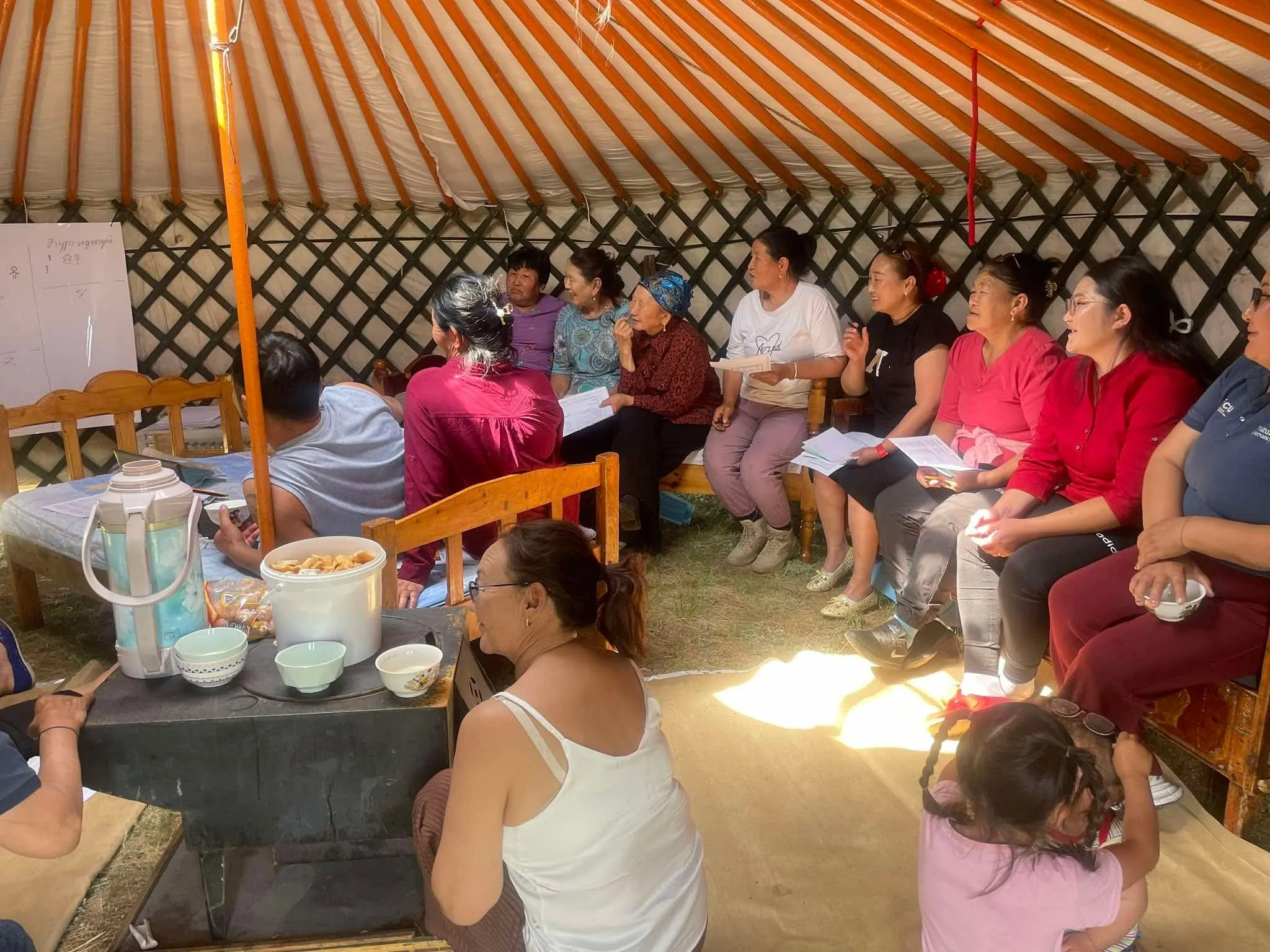COMMUNITY TOURISM SUPPORTING SUSTAINABLE ANIMAL HUSBANDRY
Organization: Mongolia Quest
Location: Khentii, Mongolia
Funding Request: $15,000
Mongolia Quest seeks to empower herding families in Delgerkhaan, Mongolia to diversify their livelihoods by establishing community-run bed and breakfast services near protected areas. This project aims to reduce environmental degradation caused by overgrazing, foster conservation stewardship, and build economic resilience through sustainable tourism.
The Issue:
In recent decades, Mongolia has seen a dramatic increase in livestock numbers—from an average of 25–30 million to nearly 80 million—largely driven by market liberalization and demand for animal products. This has led to severe pastureland degradation, desertification, and the displacement of wildlife, further exacerbated by climate-induced extreme winters that have devastated herder incomes. Simultaneously, protected areas are under-resourced, with park rangers often tasked with patrolling up to 150,000 hectares each. While tourism offers an alternative income stream and potential support for conservation, local herders lack the training and infrastructure to capitalize on it. Without alternative livelihoods, families are forced to maintain unsustainable herd sizes or migrate to urban areas, severing generational ties to the land and weakening community resilience.
Grant Award Use:
ATCF funding will support Mongolia Quest’s efforts to train 19 families from the Sharyn Gol cooperative to operate community-based tourism accommodations using existing gers (traditional felt tents). Funds will be used to develop and deliver training on hospitality skills, environmental interpretation, and guiding; produce marketing materials; and establish agreements with protected area authorities. The initiative will also fund small-scale equipment needs and internet connectivity to support communications and marketing. This project builds on Mongolia Quest’s three decades of experience and aims to create a replicable, low-cost model for community-driven ecotourism in remote areas.
What Would a Successful Project Result In?
Success will be demonstrated when the Sharyn Gol cooperative is running a functioning bed and breakfast operation with trained local hosts, increased family income, and reduced dependence on unsustainable livestock practices. Long term, the project will serve as a model for sustainable tourism development across Mongolia, supporting conservation enforcement through local engagement while providing youth with alternatives to urban migration.



